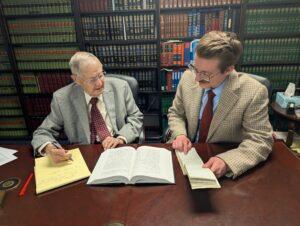
Don’t Go It Alone, Call McGlone
Don’t Go It Alone, Call McGlone
Don’t Go It Alone, Call McGlone
Don’t Go It Alone, Call McGlone
Highly experienced Indianapolis & Terre Haute Car Accident Lawyers. Three generations of expertise.
Highly experienced Terre Haute & Indianapolis Car Accident Lawyers. Three generations of expertise.
If you have recently been involved in a car accident, you are probably still trying to recover from your injuries and dealing with emotional trauma but the sooner you contact a car accident lawyer the faster you can start on your road to recovery. Unfortunately, a motor vehicle collision can have lasting physical and mental impacts that can be difficult to overcome, even for individuals involved in minor accidents.
As the state and national population continue to grow, the roadways become more congested with traffic, and the chances of being involved in a car wreck also increase. For this reason, car accident injuries are on the rise. Sadly, many of these car accident cases directly result from a negligent driver who, in many cases, is distracted by their cell phone.
If you are a car accident victim, you must seek qualified legal representation immediately to protect yourself and your future. McGlone Law of Indianapolis and Terre Haute, Indiana is a personal injury law firm dedicated to assisting injury victims in obtaining maximum compensation for their car accident settlement.
If you have been injured by driver negligence, contact our law offices, and ask to schedule a free case evaluation today with our Indianapolis and Terre Haute car accident lawyers.

Remain calm and call the police

Take photos of the scene and save dashcam videos

Exchange insurance information with involved parties

Collect witness statements and contact information

Do not admit fault

Seek medical attention

Contact an attorney
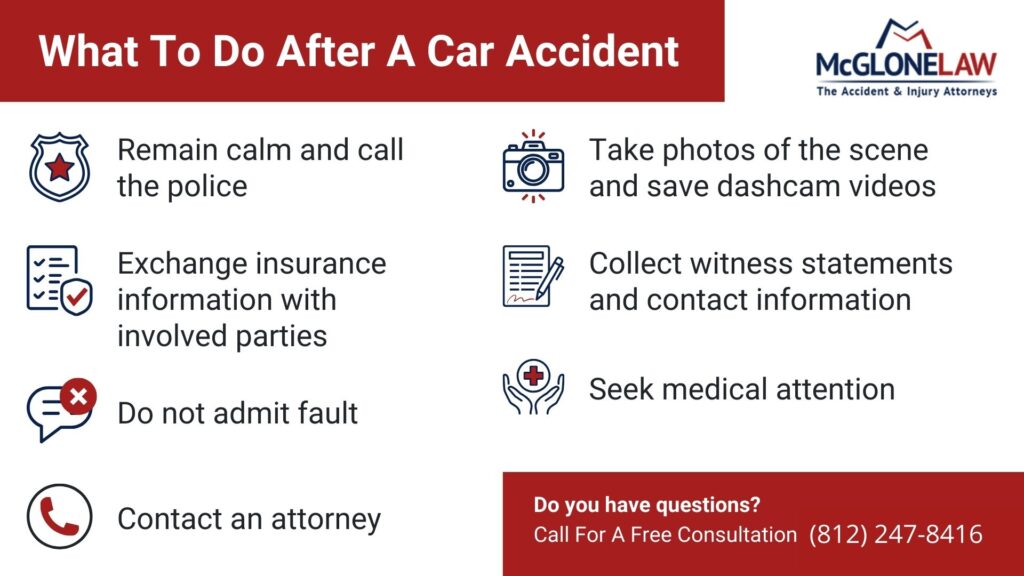
It’s important to call the police right away after a car accident. Getting a police report filed will help you recover the compensation you deserve. While at the scene, remain calm. Arguing or otherwise becoming aggressive with another driver might turn into a disastrous situation. Things could escalate quickly, and even someone not previously at fault could end up in legal jeopardy. If you have questions, our Indianapolis and Terre Haute car accident lawyers are here to help.
You should always collect the driver’s license, proof of insurance and contact details for all parties involved in the accident.
Even if you made an error while driving, you may not be entirely at fault. It’s important not to admit fault in the heat of an accident because it can hurt you in court later. You may end up admitting fault when you weren’t entirely at fault or even when you weren’t at fault at all.
Photographic and video evidence of the damage to both vehicles, the positioning of the vehicles, skid marks, will help with reconstructing the accident, proving fault, and recovering the compensation you deserve.
Witness statements can add credibility to your statements about what happened. If possible, talk to those who witnessed the accident and get their contact information so they can be contacted later if needed.
Even if you don’t think you are seriously injured, you should always seek medical attention after an accident. You may have injuries that haven’t presented yet because of the adrenaline from the accident. If you wait, the insurance company will use your decision to not seek medical attention against you, claiming that you must not be injured badly if you didn’t seek help. This also goes for follow up visits. You should see your doctor every 30 days while your case is ongoing.
The best way to get the compensation you deserve is by contacting an attorney who specializes in car accident cases. Using an attorney will ensure that you’ve got someone in your corner who knows all the ways the insurance companies are going to try to devalue your claim and who won’t let that happen to you. When looking for an attorney, look for one trained in accident reconstruction and skilled in car accident personal injury cases. This kind of attorney will have the knowledge and experience with these kinds of cases that will best position them to advocate for you and the compensation you deserve.

Remain calm and call the police

Take photos of the scene and save dashcam videos

Exchange insurance information with involved parties

Collect witness statements and contact information

Do not admit fault

Seek medical attention

Contact an attorney
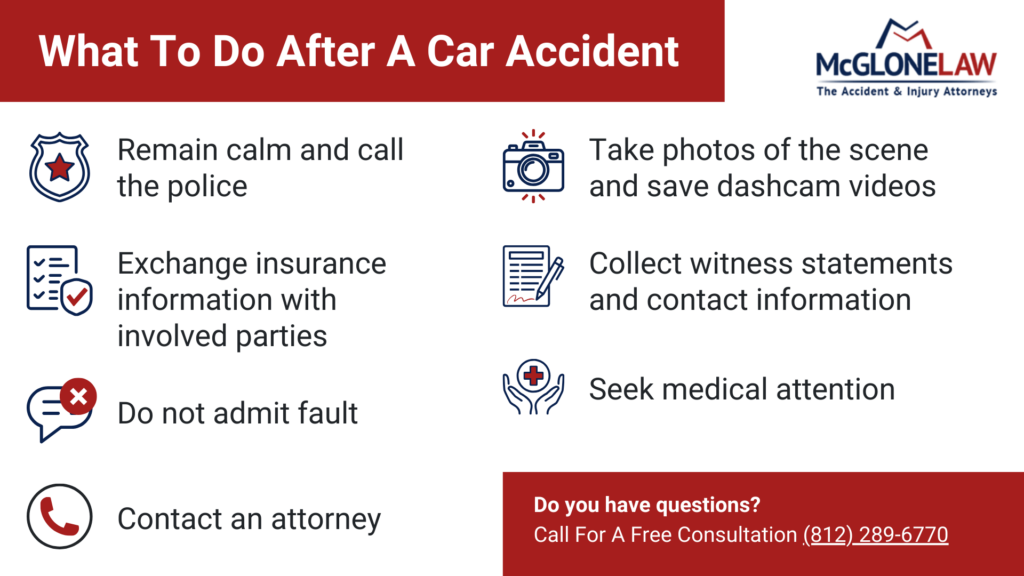
It’s important to call the police right away after a car accident. Getting a police report filed will help you recover the compensation you deserve. While at the scene, remain calm. Arguing or otherwise becoming aggressive with another driver might turn into a disastrous situation. Things could escalate quickly, and even someone not previously at fault could end up in legal jeopardy.
You should always collect the driver’s license, proof of insurance and contact details for all parties involved in the accident.
Even if you made an error while driving, you may not be entirely at fault. It’s important not to admit fault in the heat of an accident because it can hurt you in court later. You may end up admitting fault when you weren’t entirely at fault or even when you weren’t at fault at all.
Photographic and video evidence of the damage to both vehicles, the positioning of the vehicles, skid marks, will help with reconstructing the accident, proving fault, and recovering the compensation you deserve.
Witness statements can add credibility to your statements about what happened. If possible, talk to those who witnessed the accident and get their contact information so they can be contacted later if needed.
Even if you don’t think you are seriously injured, you should always seek medical attention after an accident. You may have injuries that haven’t presented yet because of the adrenaline from the accident. If you wait, the insurance company will use your decision to not seek medical attention against you, claiming that you must not be injured badly if you didn’t seek help. This also goes for follow up visits. You should see your doctor every 30 days while your case is ongoing.
The best way to get the compensation you deserve is by contacting an attorney who specializes in car accident cases. Using an attorney will ensure that you’ve got someone in your corner who knows all the ways the insurance companies are going to try to devalue your claim and who won’t let that happen to you. When looking for an attorney, look for one trained in accident reconstruction and skilled in car accident personal injury cases. This kind of attorney will have the knowledge and experience with these kinds of cases that will best position them to advocate for you and the compensation you deserve.

Out-of-pocket expenses you have because of the accident. These include: past and future medical bills, lost wages, loss of future earning capacity, and property damage.
Intangible losses that don’t have a fixed dollar amount and are subjective. These include: pain and suffering, loss of enjoyment of life, loss of companionship, and permanent disfigurement and scarring.
Punitive damages are awarded to punish the defendant for wrongdoing and to discourage others from repeating the behavior. These may be awarded when the defendant has acted intentionally recklessly or with gross negligence.
Our law firm is uniquely qualified to help personal injury victims recover damages that may be appropriate for their particular case. For example, Indiana law is stringent regarding allowing plaintiffs to try and recover punitive damages. In most instances, the injury victim is not entitled to file a claim for punitive damages simply because the defendant in the case acted negligently but not with willful intent to cause harm.
Nevertheless, an injury victim may recover punitive damages if it can be demonstrated that the other party knowingly acted in a manner that any reasonable person would believe had a probability of causing harm or injury.
If you feel that your case qualifies for punitive damages, you need to consult with a personal injury lawyer immediately. At McGlone Law, our lawyers have the experience to determine if your case qualifies for punitive damages and what amount would be appropriate to request in a settlement.
After an accident, you should 1) document the scene, 2) seek medical attention, 3) document the accident’s impact on your quality of life in the weeks following, 4) consult a car accident lawyer about your case. You can read our full after accident checklist here.
Typically, you have two years to file a car accident claim in Indiana. If you were a minor at the time of the accident, you have two years after your 18th birthday to file a claim. It is best to consult a car accident lawyer right after the accident so evidence can be gathered before it is lost.
No. Indiana is considered a tort or at-fault state. However, Indiana does have uninsured and underinsured car insurance, which you should get because it can cover you if the other party does not have or does not have enough insurance.
Yes, you can. Indiana follows a comparative negligence law. This law can mean that each party involved in an accident is assigned a percentage of fault, depending upon what they did or failed to do that helped to cause the accident. If you are assigned more than 51%, you are unable to pursue damages.
Several factors work together to establish fault after a car accident. Evidence includes pictures or videos of the scene and vehicles, police records, witness statements, and more. Read our blog to learn more about comparative negligence and partial fault.
You can claim economic damages, such as medical bills, non-economic damages, such as pain and suffering, and punitive damages, which punish intentionally reckless or grossly negligent behavior. Your best chance at recovering the compensation you deserve is to consult an attorney. Insurance companies have lawyers to minimize their claims; you need someone fighting for you.
It depends. If you are injured, it is best to consult a lawyer. Even if the accident seems minor at first, injuries can worsen over time, and it is crucial to gather evidence early. However, if you are not injured at all, you may not have enough damages to justify the cost of a lawyer.
Insurance companies try to minimize their claim payouts. This is called claims control. They will review the policy, your injuries, and your level of fault in the accident and try to pay as little as possible. Insurance companies will sometimes try to get people to say things that imply the individual was more at fault than they are or that the accident isn’t as bad as it is. We recommend you get a lawyer and let them talk to your insurance company to negotiate a settlement.
Most car accident lawyers, including McGlone Law, work on a contingency fee. This means that the lawyer gets paid out of your settlement or money awarded at trial, typically around 33%. So, if you get a settlement of $100,000, your lawyer’s fee would likely be around $30,000.
Most car accident lawyers, including McGlone Law, work on a contingency fee. This means that the lawyer gets paid out of your settlement or money awarded at trial, typically around 33%. So, if you get a settlement of $100,000, your lawyer’s fee would likely be around $30,000.
A Claim is the first step after emergency care following a car accident. A claim is not the same as a lawsuit. You should file it right away. You should seek medical treatment as soon as possible and follow up monthly until you have completed treatment to avoid a “gap in treatment.” If you have a gap in treatment then the insurance company might blame your injury status on something else. If there is a public entity involved, like say a government vehicle, you have 180 days to file a Tort Claim Notice, which is different than a claim.



McGlone Law – Indianapolis Office
1052 Woodlawn Ave Suite B,
Indianapolis, IN 46203
(317) 495-1777
*Available 24/7
Copyright©2025, McGlone Law – The Accidents & Injury Attorneys. All Rights Reserved.